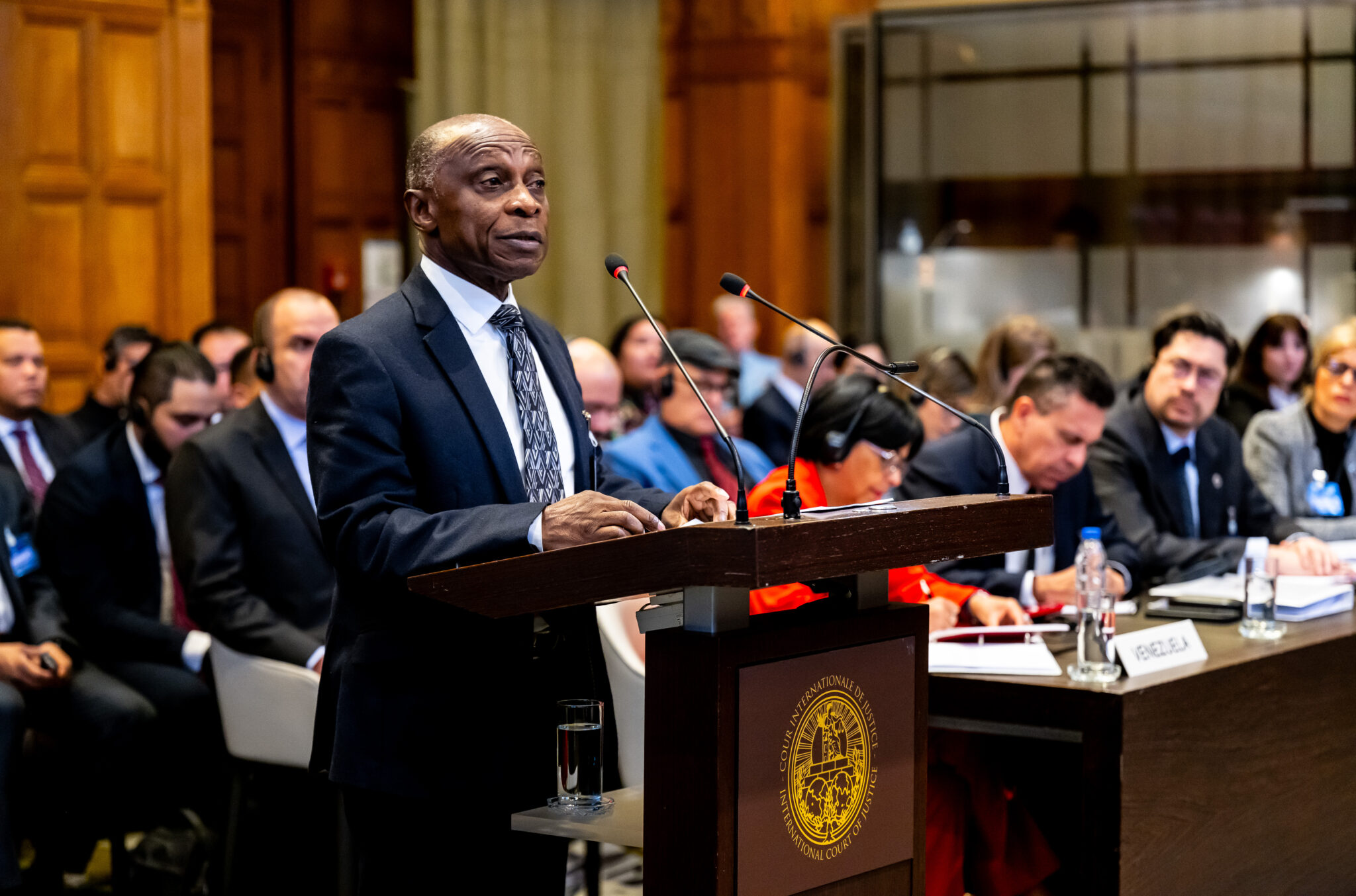Venezuela risks triggering even more international sanctions if it proceeds with its unlawful elections in Guyana’s Essequibo region. The International Court of Justice (ICJ) issued a binding order prohibiting any actions that could alter the status quo pending a final ruling in the border case.
In an exclusive interview with OilNOW, Carl Greenidge, Guyana’s Agent in the ICJ case, explained that while the World Court lacks police powers, its decisions are “legally binding” on all United Nations (UN) member states. “You can’t wake up [one] morning and say that they don’t have jurisdiction,” he said.
Guyana deploys air assets following Venezuela navy incursion at offshore oil installations | OilNOW
He warned that Guyana could formally ask the UN, including the Security Council or the General Assembly, to act against Venezuela. “There are a variety of economic sanctions which governments usually prefer to take,” Greenidge stated. These could include freezing assets or trade restrictions.
Greenidge noted that if Venezuela violates Guyana’s sovereignty on the ground, such as sending officials or military personnel into Essequibo, Guyana has the right to detain them. “Any action we take against Venezuela would have the cover of the UN,” he stressed.
Guyana-Venezuela land boundary was settled 124 years ago | OilNOW
However, he acknowledged challenges in securing Security Council support due to the veto power of its permanent members. Despite this, Greenidge said the global consensus remains in Guyana’s favor. “So far, the UN’s members…have taken the view that Venezuela is wrong—because, of course, it is wrong,” he added.
The ICJ is currently considering the validity of the 1899 Arbitral Award that established the boundary between Venezuela and then-British Guiana. Venezuela accepted the award for decades before declaring it null and void in 1962. Itt has now extended its claim to offshore waters that include portions of Guyana’s Exclusive Economic Zone (EEZ), rich in oil and gas.
Venezuela intends to hold its elections on May 25.
Its government has said, “Venezuela reaffirms that, faithful to its historical position, it does not and will never recognize the jurisdiction of the International Court of Justice, nor will it comply with any decision issued by it to settle the territorial dispute over the Guayana Esequiba.”



